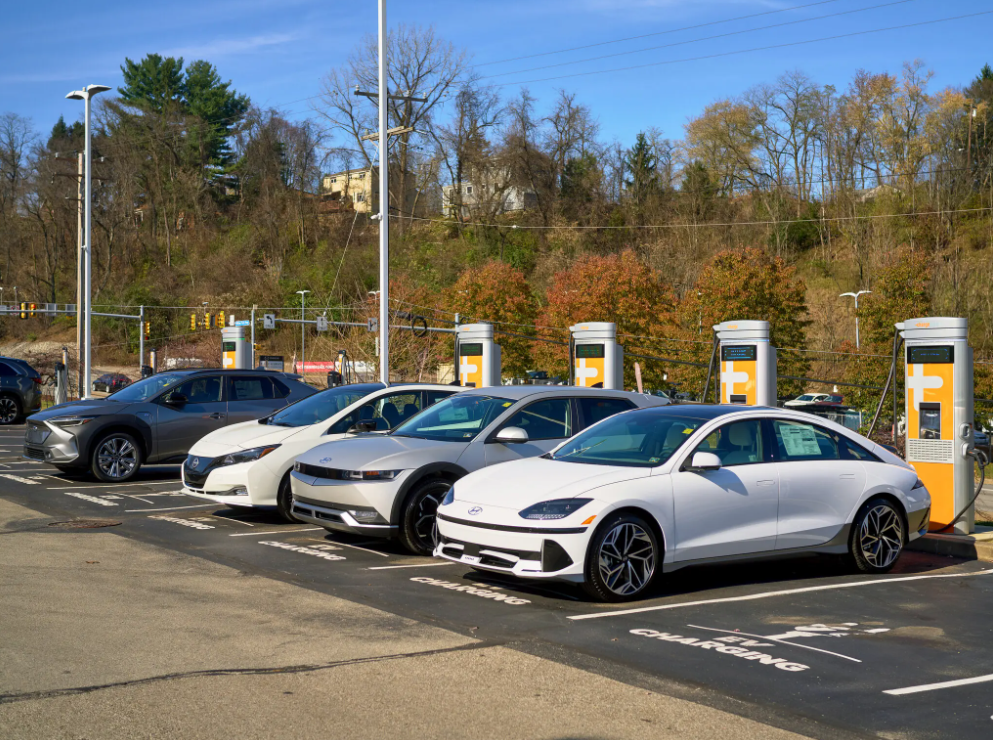After years of rapid growth, electric car sales in Europe appear to be slowing as consumers wait for better, cheaper models to arrive in the next two to three years.
Sales of all-electric vehicles (pure electric cars) in Europe increased by 47% between January and September this year, but instead of celebrating, major carmakers such as Tesla, Volkswagen and Mercedes-Benz were gloomy.
High interest rates and a sluggish market are causing customers to lose interest, as evidenced by Volkswagen's electric car orders being half of what they were last year.
Dealers in Germany and Italy, as well as research by four global data analytics firms, say the reason behind the slower uptake is economic uncertainty, which makes consumers less confident that electric vehicles meet their needs in terms of safety, range and price.
“The main problem is uncertainty,” said Thomas Niedermayer, head of a car dealership in Bavaria, Germany.
“Many people think technology will improve and would rather wait three years for the next model than buy a car that will quickly lose value now,” explains Niedermayer.
Flavia Garcia and Tom Carvell's family in Edinburgh (Scotland, UK) are still driving the same old Toyota Auris that they have been using for 15 years.
With the ban on petrol and diesel cars looming, the two considered buying an electric car instead, but were ultimately put off by a lack of charging infrastructure, concerns about battery life and price.

Lack of charging infrastructure is one of the reasons why consumers are hesitant to buy an electric car. Photo: NY Times
New electric cars in the UK are still on average 33% more expensive than fossil-fuelled models, AutoTrader says, and most new models aimed at mainstream consumers won’t be on the market until 2025 at the earliest.
But by then they will have to compete with electric cars from BYD or Nio coming to Europe from China. Chinese electric car makers are said to have a price advantage of more than 30% over their European counterparts.
“You want to do the right thing for the environment, but it feels like you’re going to make a very expensive investment that’s going to make your life a little more complicated,” Garcia said. “Maybe we’ll buy a hybrid first.”
Schmidt Automotive Research said that electric vehicle sales in Western Europe will reach 1.8 million units, accounting for 15.7% of the electric vehicle market in 2023, 2.0 million units in 2024 (16.5%), 2.6 million (20.0%) in 2025, and 9.2 million (65%) in 2030. Western Europe includes five major markets: Germany, France, the UK, Italy and Spain.
In Germany, intentions to buy electric cars have remained unchanged over the past year, a survey by consumer research firm The Langston Co found. That means that while the number of electric cars sold is increasing, the number of people who want to buy one is not.
The sales growth could simply be a sign that automakers struggling to produce electric vehicles due to supply chain bottlenecks are finally able to meet backlog orders, rather than a sign of rising demand, a representative for The Langston Co said.
Philip Nothard, a representative of Cox Automotive, said that low residual values of electric vehicles also make buyers hesitant because companies and many consumers choose new cars based on the value they get when they trade them in.
“We call the combination of low residual values, high supply and low demand the valley of death that the EV industry will experience in 2024-2027,” Nothard added.
In short, slower growth in electric car sales in Europe can be attributed to a number of factors, including consumer uncertainty, lack of charging infrastructure, higher prices compared to traditional cars, and delays in affordable models. Carmakers are now faced with the challenge of meeting customer demand while maintaining profitability in the growing electric vehicle market .
Minh Duc (According to Reuters, Forbes)
Source


































Comment (0)